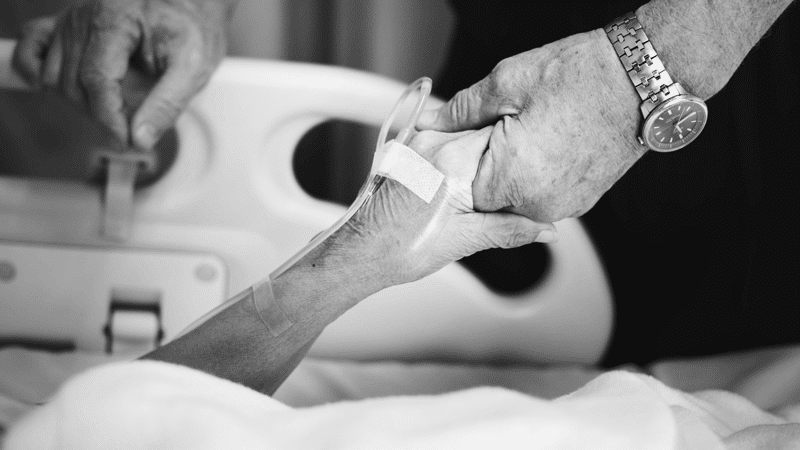‘Better for them to die’: The lie that will only get bigger if Scotland legalises assisted suicide

First the ‘terminally ill’. Then the disabled. Then the mentally ill. Then the old and infirm and sad and lonely.
This is the future Scotland faces by toying with Liam McArthur MSP’s proposed Assisted Dying (Scotland) Bill. If his proposals become law, anyone aged 16 or over who is deemed terminally ill and has been resident in Scotland for twelve months would be allowed to receive help to take their own lives. But before McArthur presents draft legislation to Holyrood, which could be as soon as early next year, MSPs would do well to take heed of examples from other countries which have started down that path.
New Zealand only legalised euthanasia and assisted suicide last year but the politician behind the move is already pushing to expand the boundaries of the law. ACT Party Leader David Seymour claimed that the country should axe the requirement that a person must be “suffering from a terminal illness that is likely to end their life within six months” in order to request to be killed.
Seymour admitted that he only agreed to the six-month requirement to gain political support for his Bill, and now it is in force activists have gained a foothold to gradually remove more legal protections for the vulnerable. The law currently prevents an application for assisted suicide or euthanasia on the sole basis of disability or mental disorder. But how long will it be before there are calls for these ‘safeguards’ to be removed as well, with the claim it is unfair to persons living with those conditions who want to end their life?
Canada legalised euthanasia in 2016 but has already scrapped the requirement for a person to be terminally ill and next year will extend it to those deemed to have mental illness. In 2014, Belgium became the first country in the world to legalise euthanasia for children, having initially allowed it only for adults. Evidence shows that when society decides that euthanasia or assisted suicide is acceptable for some there can be no barrier for its expansion, and invariably an increasing number of people die each year as a result.
‘We have to justify being alive’
As the categories of those who can apply to end their life expands, so too pressure increases on the living to justify their continued existence.
Roger Foley, a man hospitalised by the debilitating condition cerebellar ataxia for six years, has alleged that nurses at Victoria Hospital in London, Ontario said he should consider using Canada’s assisted suicide law.
Foley launched legal action against the hospital, among others, in 2018 arguing that the defendants had pushed “assisted dying instead of assistance in living”. The 47-year-old stated: “Society deems us better off dead. We have to justify being alive”.
Amir Farsoud, who also lives in Canada, has applied to end his life, not because of the constant pain from his back injury, but because he could not find a new home where he can afford to live on his disability payments. He wants to live but he is afraid of being homeless.
Dignity and respect
Such examples show the frightening future in store for the people of Scotland if McArthur’s plans pass into law. A country where a widening group of people can be deceived into believing it is better to die than to live and where the vulnerable are pressured to end their lives. Scotland should not send the message that some lives are not worth living. All humans are made in the image of God, and everyone, including the unborn, the disabled, the old and frail, and those diagnosed with a degenerative illness are worthy of dignity and respect.
Since 2010, two assisted suicide Bills have been defeated in the Scottish Parliament, and this one must be too. Scotland should uphold the sanctity of life from conception to natural death. God gives life, he sustains it, and only he has the authority to take it away.
